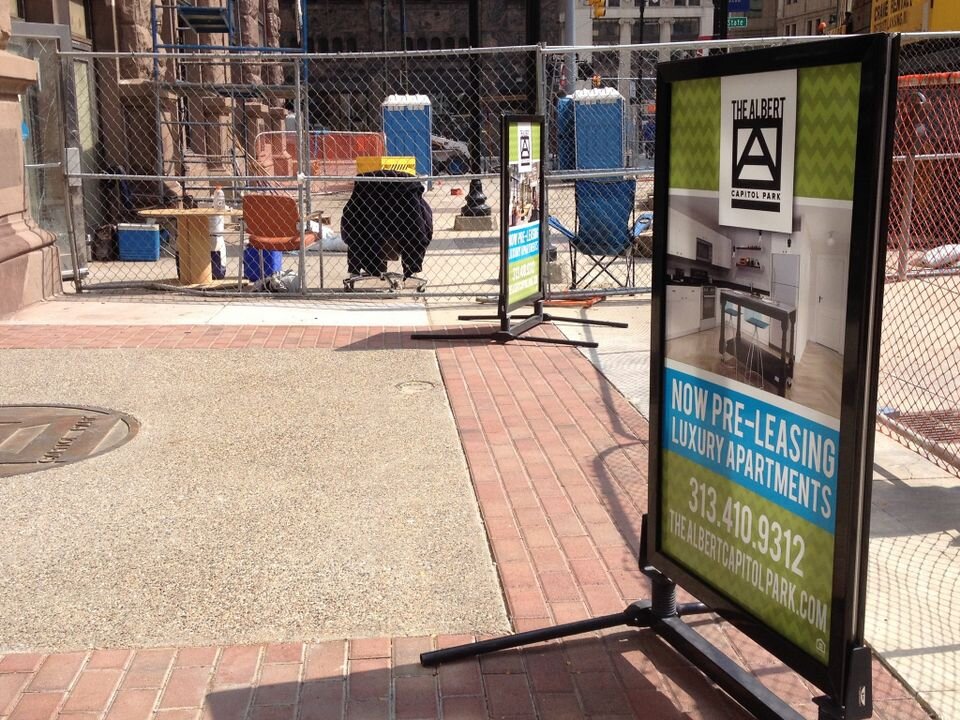
ADVOCACY
Collaboration between government and interest groups, working on behalf of vulnerable populations, can be successful, as evidenced by the relationship between Senior Housing Preservation – Detroit and the City of Detroit.
This collaboration began with a crisis in 2013 – the transition of the low-income Griswold Apartments to The Albert, a market rate building targeted to young professionals. The development, identified with the emerging gentrification of Detroit, left over 100 seniors at risk of homelessness, complicating their mental and physical health. Research conducted by the Wayne State University School of Social Work, a coalition member, has explored the trauma and impact on residents’ physical, spiritual and mental well-being incurred by displaced vulnerable seniors.
The crisis resulted in the establishment of SHP-D, and immediate engagement with the Detroit mayor and city council, as well as other elected officials. Arthur Jemison, then director of Housing and Revitalization, met with coalition members early-on and looked to SHP-D for guidance on targeting the buildings most at risk. SHP-D helped shape the mayor’s platform on inclusivity and contributed to the recent Multi-Family Affordable Housing Strategy. What ultimately resulted was development of a preservation strategy, adoption of Detroit’s Inclusionary Housing Ordinance, creation of an Affordable Housing Leverage Fund, and an ongoing dialogue leading to:
40 Davenport (now The Hamilton): The developer negotiated an agreement with the city, resulting in the preservation of apartments for low- income tenants already residing there; many of these tenants were seniors. While it didn’t preserve the units beyond the current tenant’s stay, it reflects an understanding by the city and developer that new projects that displace people hurt the city’s progress.
Industrial-Stevens Building: Under renovation by the Roxbury Group, it was agreed that the building would remain a low-income residence, supported by HUD vouchers. With Washington Boulevard poised for gentrification, this is a valuable commitment by the developers.
Following our advocacy to preserve these affordable buildings, as of 2022, no other affordable, predominantly senior buildings have been lost.







